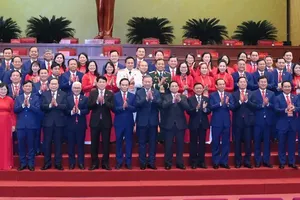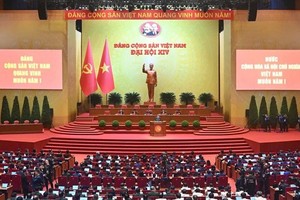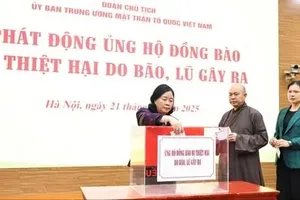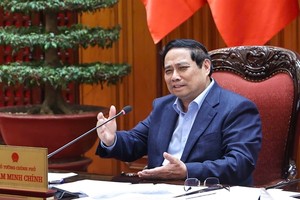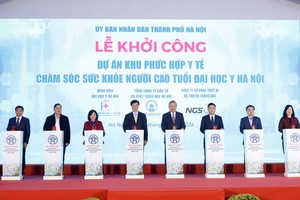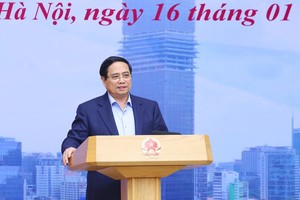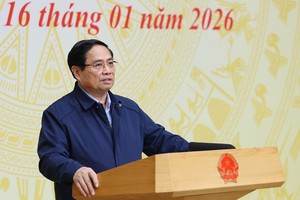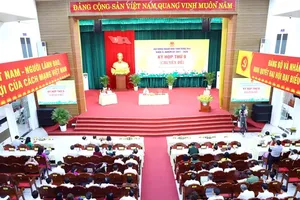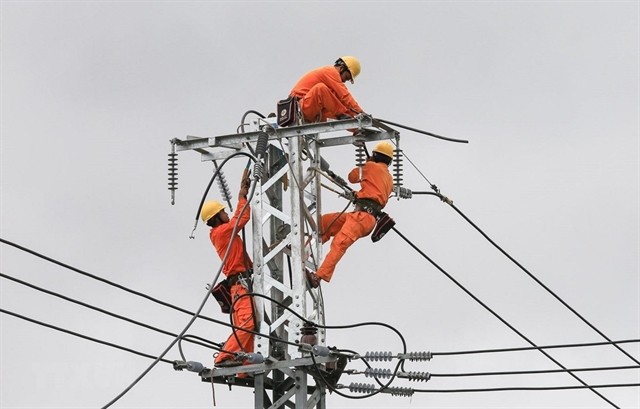 |
Workers of EVN checking the transmission system. Vietnam should focus on completing the legal framework for the operation of a competitive retail electricity market.— VNA/VNS Photo |
A conference on the electricity market, organized by the Standing Committee of the National Assembly on Tuesday, emphasized the need for a market-based mechanism for electricity pricing. This move is crucial to restructuring the power market and ensuring energy security.
Deputy Chairman of the National Assembly, Nguyen Duc Hai, acknowledged issues with electricity pricing policies and the slow progress in developing a competitive energy market. Le Quang Huy, Chairman of the Committee of Science, Technology and Environment, emphasized the importance of developing the power sector to support socioeconomic growth and national energy security.
The pricing policy for electricity plays a central role in attracting investment and achieving sustainable goals, including climate change adaptation.
Nguyen Dinh Phuoc, head of finance and accounting department of Vietnam Electricity (EVN), said that although average electricity retail prices increased by 3 percent from April 29, the increase, estimated at VNĐ8 trillion in total, was not enough for EVN to deal with financial difficulties, which would affect the operation of power plants and electricity supply.
Bui Xuan Hoi, Rector of the North Electricity College, said that unreasonable electricity prices would undermine EVN’s ability to reinvest in expanding the power system and put pressure on the economy.
According to Tran Tue Quang, Deputy Director of the Electricity Regulatory Authority of Việt Nam under the Ministry of Industry and Trade, electricity pricing must be market-based to ensure the development of the power market.
Ha Dang Son, Director of the Energy and Green Growth Research Center, highlighted the need for bold actions in restructuring Vietnam's power sector to align with the ambitious National Power Development Plan for 2021-2030.
He said that the development of a competitive power market must be accelerated.
The National Load Dispatch Center would be developed into an independent unit to ensure the operation of the power market with transparency and fairness among parties, he added.
In the short term, the focus should be placed on completing the legal framework for the operation of a competitive retail electricity market.
The mechanism of direct power purchase should be issued to encourage renewable power plants to participate in the power market, he said, adding that this would also create impetus for investment in and use of renewable energies to realize sustainable development goals.
The competitive electricity generation market was piloted in Vietnam from July 1, 2012 to December 21, 2018 and officially operated from the beginning of 2019.
To implement the competitive electricity retail market following the Prime Minister's Decision No 63/2013/QĐ-TTg dated November 8, 2013, the Ministry of Industry and Trade issued Decision No 2093/QĐ-BCT dated August 7 to approve the design of the competitive electricity retail market model.
Several points of the Law on Electricity were amended and took effect from March 1, 2022, to pave the way for the construction of a competitive electricity retail market.
